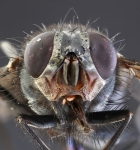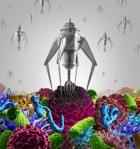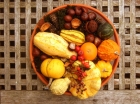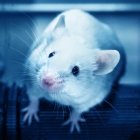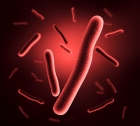What is new in Biotech
Developing a nano-treatment to help save mangroves from deadly disease
31.7.2024 | Press monitoring
Mangroves and palm trees are hallmarks of the Sunshine State not just for their beauty but for their immense importance to Florida's coastlines. Mangroves are crucial because they naturally protect coastal shores from storm damage and serve as vital wildlife habitats around the world. Scientists at the University of Central Florida are working...
Reduce, reuse, reflycle: How genetically modified flies can reduce waste and keep it out of landfills
29.7.2024 | Press monitoring
A Macquarie University team proposes using genetically engineered black soldier flies (Hermetia illucens) to address worldwide pollution challenges and produce valuable raw materials for industry, including the USD $500 billion global animal feed market. "One of the great challenges in developing circular economies is making high-value products...
New nanoparticles boost immune system in mice to fight melanoma and breast cancer
26.7.2024 | Press monitoring
Vanderbilt researchers have developed a set of nanoparticles that stimulate the immune system in mice to fight cancer and may eventually do the same in humans. Working with collaborators at Yale University, John T. Wilson and his team designed lipid nanoparticles – the tiny balls of fat behind the success of mRNA vaccines – to deliver a nucleic...
Enzyme-powered snot bots help deliver drugs in sticky situations
24.7.2024 | Press monitoring
Snot might not be the first place you'd expect nanobots to be swimming around. But this slimy secretion exists in more places than just your nose and piles of dirty tissues – it also lines and helps protect the lungs, stomach, intestines and eyes. And now, researchers reporting in ACS Nano have demonstrated in mice that their tiny,...
Groundcherry gets genetic upgrades: Turning a garden curiosity into an agricultural powerhouse
22.7.2024 | Press monitoring
Imagine a small fruit that tastes like a cross between a tomato and a pineapple, wrapped in its own natural paper lantern. That's the groundcherry (Physalis grisea) – a little-known relative of tomatoes that's been quietly growing in gardens and small farms across North America for centuries. Now, this humble fruit is getting a 21st-century...
Smart soil grows 138% bigger crops using 40% less water
19.7.2024 | Press monitoring
Watering and fertilizing crops to provide enough food for a changing world is a major challenge in agriculture. Now, scientists at the University of Texas at Austin have developed a “smart soil” that can keep plants better hydrated and provide a controlled release of nutrients. In tests it drastically improved crop growth while using far less...
Mice created with full human immune systems for the first time
17.7.2024 | Press monitoring
Researchers at The University of Texas Health Science Center at San Antonio have succeeded where many before them have failed, in engineering a type of mouse that has an immune response identical to humans. While mice are commonplace in research and considered one of the best animals to work with, they're far from a perfect human substitute. A...
Respiratory bacteria turn off immune system to survive, study finds
15.7.2024 | Press monitoring
Researchers from The University of Queensland have identified how a common bacterium is able to manipulate the human immune system during respiratory infections and cause persistent illness. The research, led by Professor Ulrike Kappler from UQ's School of Chemical and Molecular Biosciences, studied the virulence mechanisms of Haemophilus...
Team develops the first cell-free system in which genetic information and metabolism work together
12.7.2024 | Press monitoring
By interlinking the metabolic and genetic levels, researchers want to create self-sustaining synthetic biological systems that can generate their own building blocks and drive processes in a reciprocal manner – just like in living cells. A team led by Tobias Erb from the Max Planck Institute for Terrestrial Microbiology in Marburg, Germany, has...
Self-assembling and disassembling swarm molecular robots via DNA molecular controller
10.7.2024 | Press monitoring
Researchers from Tohoku University and Kyoto University have successfully developed a DNA-based molecular controller that autonomously directs the assembly and disassembly of molecular robots. This pioneering technology marks a significant step towards advanced autonomous molecular systems with potential applications in medicine and...

